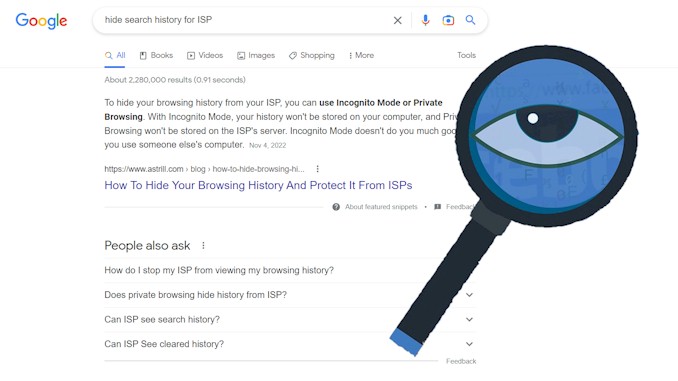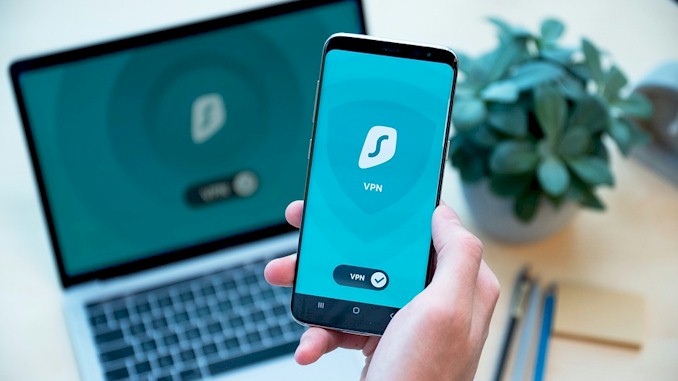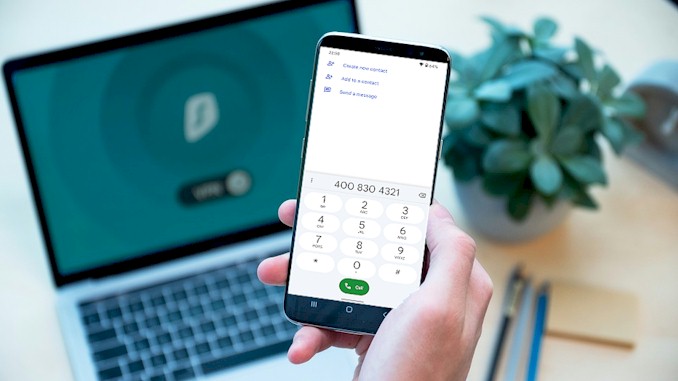Can You Really Get Faster Internet Speeds with VPN? Here’s What Experts Say
It was the night when the match between England and Germany took place in the iconic Wembley Stadium. I went to the website of Channel 4 by using the VPN that connected to the server node in the UK and tried to watch live streaming there. After the screen showed me the continuous spinning circle, the picture was blurry for a few minutes until it became acceptable. At that moment, I could not help to wonder if I could get faster speeds with the VPN. After the match, I began the journey of studying this topic, and this post is what I have learned.
The VPN can improve internet speeds in some cases. However, it can also slow down your internet connection due to the extra effort required to create a secure and private connection and extra hops to reach the destination.
The effects of a VPN on internet speeds depend on several factors, including your internet connection speed, VPN protocol, distance to the VPN server, and the number of users on the VPN server. In this blog post, I will explore how VPN affects internet speeds, whether VPN slows down internet speeds, and provide tips for getting faster internet speeds with VPN. I will also address common myths about VPN and internet speeds.
Can VPN Improve Internet Speed?
Using a VPN can indeed improve your internet speeds. There are a few reasons why a VPN might actually result in faster traffic:
Block ads and apply addition compression
First, an ad blocker built into a VPN can help to make internet speed faster. This is because ad blockers prevent ads from loading, which can reduce the amount of data that needs to be transmitted over the network.
Ads can be quite large and can take up a significant amount of bandwidth, especially if you are visiting sites with many ads or video ads. By blocking these ads, the VPN can reduce the amount of data that needs to be downloaded, which can potentially make your internet speed faster.
Anyway, if you are experiencing slow internet speeds and suspect that ads may be a contributing factor, using a VPN with an ad blocker may be worth trying. Though, it’s important to choose a reputable VPN provider with a well-tested ad blocker that is known to be effective and efficient.
And, there are some cases a VPN may apply additional compression to make internet speed faster. Compression is a technique used to reduce the size of data packets transmitted over the internet, which can potentially improve speed by reducing the amount of data that needs to be transmitted.
When you use a VPN, your internet traffic is encrypted and routed through a remote server before it reaches the internet. Some VPN providers may apply additional compression to the data packets transmitted between your device and the VPN server. This can potentially reduce the size of the packets and make them faster to transmit over the internet.
Eliminating Throttling with VPN
Second, if it is the case that the ISP throttles your internet connection, the VPN can help you to overcome that. Throttling is a practice used by internet service providers (ISPs) to slow down the internet speed of certain types of traffic. This can happen for various reasons, such as to manage network congestion or to enforce data caps. Especially when you are are trying to access high-bandwidth services like streaming video or online gaming.
Using a VPN can potentially eliminate throttling because it hides your internet activity from your ISP. When you use a VPN, your internet traffic is encrypted and routed through a remote server before it reaches the internet. This means that your ISP cannot see what you are doing online, including which websites you are visiting or which services you are using.
By hiding your online activity, a VPN can make it more difficult for your ISP to identify and throttle certain types of traffic. This is because the VPN encrypts all your traffic, so your ISP cannot see what you are doing online, which makes it difficult for them to selectively slow down your internet speed. Additionally, many VPN providers offer servers optimized for streaming or gaming, which can further reduce the chances of your traffic being throttled.
Improving Latency with VPN
A VPN can potentially improve latency by reducing the distance that your internet traffic has to travel. Latency, also known as ping, refers to the amount of time it takes for data to travel between your device and the server it’s communicating with.
When you connect to a VPN server, your internet traffic is encrypted and routed through the VPN server before it reaches its final destination. This means that your internet traffic has to travel an additional distance to reach the VPN server, which can potentially increase latency.
However, in some cases, connecting to a VPN server can actually improve latency by reducing the distance your internet traffic has to travel. For example, if you are located in a country that is far away from the server of the website or service you are accessing, connecting to a VPN server that is located closer to the website or service’s server can potentially reduce the distance your traffic has to travel and therefore reduce latency.
In addition, some VPN providers offer servers that are optimized for gaming or streaming, which can potentially improve latency for those specific types of traffic. These servers may use specialized routing or network optimization techniques to reduce latency and improve overall performance.
Overall, while there’s no guarantee that a VPN will always provide faster internet speeds, there are certain situations where it can make a noticeable difference.
How Does VPN Affect Internet Speed?
Using a VPN can potentially affect internet speed in a number of ways.
One of the main ways that a VPN can affect internet speed is by adding additional latency. When you connect to a VPN server, your internet traffic has to travel through an additional server before it reaches its final destination. This can potentially increase the amount of time it takes for your data packets to travel, resulting in higher latency or ping times.
In addition, using a VPN can potentially reduce internet speed by adding processing overhead. When you use a VPN, your device has to encrypt and decrypt data packets, which can add processing overhead and potentially slow down internet speed. This is especially true for older devices or slower internet connections.
Third, the number of users connected to the VPN server can also impact your internet speeds, because it affects the amount of bandwidth available for each user.
When a large number of users are connected to a VPN server, they are all sharing the available bandwidth, which can potentially result in slower internet speeds for each user. This is because the available bandwidth has to be divided between all of the users connected to the server.
In addition, when a VPN server is overloaded with too many users, it can also result in higher latency or ping times. This is because the server has to process a large number of data packets at the same time, which can potentially slow down the processing speed and increase the amount of time it takes for data to travel between the user’s device and the server.
Does VPN Slow Down Internet Speed?
VPN can slow down your internet speeds. As mentioned earlier, the encryption process used by VPN can cause a slight decrease in your internet speeds. The distance between your physical location and the VPN server can also cause a significant reduction in your internet speeds. Finally, if too many users are connected to the VPN server, it can lead to slower internet speeds for everyone.
Tips for Getting Faster Internet Speeds with VPN
If you want to get faster internet speeds with VPN, here are some tips to follow:
- Choose a VPN server that is located closer to your physical location.
- Select a VPN protocol that offers faster speeds, such as OpenVPN or IKEv2.
- Avoid connecting to a VPN server with too many users connected.
- Upgrade your internet plan with your ISP to get faster speeds.
Common Myths about VPN and Internet Speeds
There are several myths about VPN and internet speeds. One common myth is that VPN always slows down your internet speeds. As I have explained earlier, this is not always the case. Another myth is that VPN can magically increase your internet speeds. While VPN can improve your internet speeds in some cases, it cannot make your internet connection faster than what your ISP provides.
In conclusion, VPN can potentially improve internet speeds in some cases, but it can also slow down your internet connection. The effects of VPN on internet speeds depend on several factors, including your internet connection speed, VPN protocol, distance to the VPN server, and the number of users on the VPN server. By following the tips I have provided, you can increase your chances of getting faster internet speeds with VPN.







